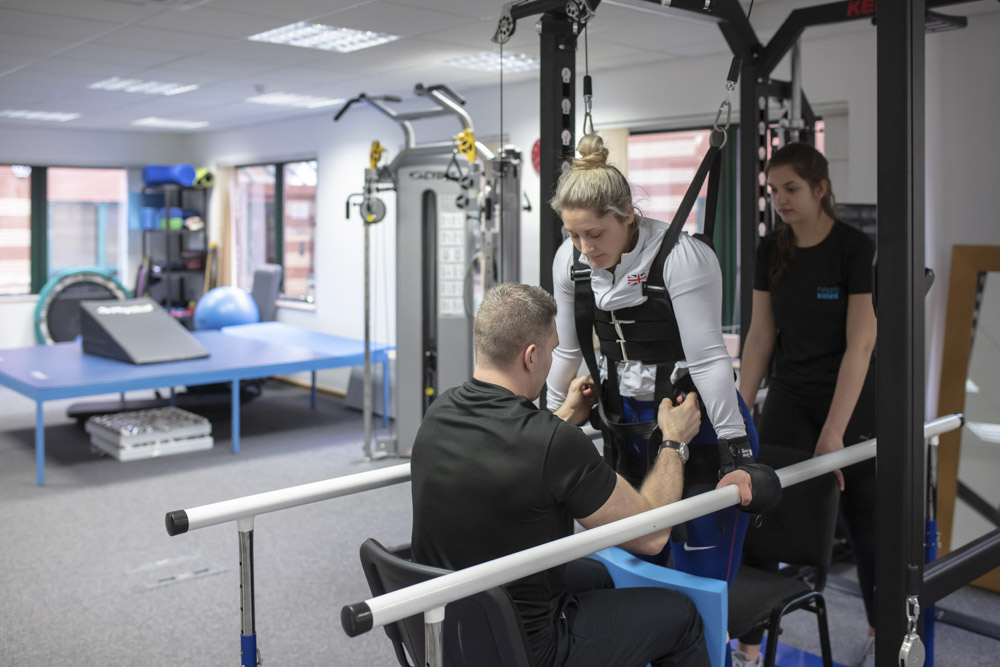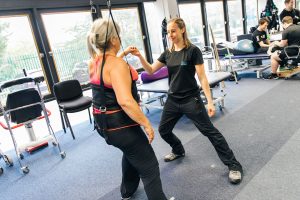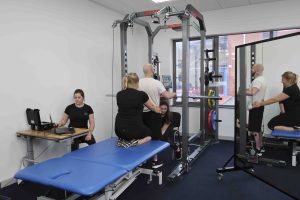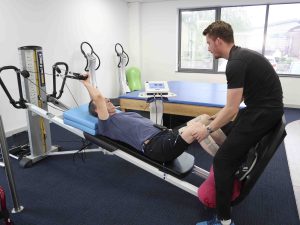A spinal cord injury (SCI) can be a life-altering event, impacting both physical and emotional wellbeing.
However, with advancements in rehabilitation techniques, individuals with SCI now have the potential to access activity-based therapy programmes that offer a pathway to not just surviving but thriving. These programmes empower individuals to regain function and improve fitness, as well as restore confidence. Here we will explore the outcomes of activity-based rehabilitation for spinal cord injury and how they contribute to helping people thrive post-injury.
What is Activity-based Rehabilitation?
Traditional rehabilitation for SCI has primarily focused on maximising independence in daily activities. While important, this approach often falls short of addressing the broader needs of individuals with a spinal cord injury. Activity-based rehabilitation takes a more comprehensive approach, targeting functional recovery, fitness improvement, physical health and psychological wellbeing.
It does this by activating the nervous system below the level of injury, promoting neuroplasticity and potentially restoring function. Through various scientifically-proven interventions like locomotor training and neuromuscular electrical stimulation, individuals can regain control over their bodies, enhance motor skills and improve mobility. By restoring independence in daily activities, however incremental, people can reclaim their lives with greater confidence.
Enhancing Fitness and Overall Health
A spinal cord injury often results in reduced muscle mass, cardiovascular deconditioning and an increased risk of secondary health complications. Activity-based therapy programmes address these challenges through targeted exercise programmes incorporating strength training, cardiovascular exercises and specialised equipment to improve endurance, enhance cardiovascular health and overall fitness. By engaging in regular physical activity, people experience improved energy levels, better weight management and, in turn, enhanced mental wellbeing.
Psychological Benefits and Confidence Building
A spinal cord injury can lead to emotional challenges such as depression, anxiety and loss of self-esteem. Taking part in an activity-based rehabilitation programme, particularly in a community setting, can reduce social isolation by offering the opportunity to engage with other people in similar situations. Being in an open, positive, gym-like environment, as at Neurokinex, has the added benefit of boosting someone’s outlook regarding recovery and fitness after SCI. Last but not least, engaging in physical activity releases endorphins which promote a positive mood state and foster a sense of achievement and empowerment. As clients witness their progress and accomplishments, we see their self-confidence and belief in their abilities soar.
Transformative approach
Activity-based rehabilitation offers a transformative approach for people with a spinal cord injury, moving beyond surviving and focusing on thriving. By targeting functional recovery, improving fitness and boosting psychological wellbeing, these programmes enable people to regain control over their lives. With access to specialised interventions, expert guidance and a supportive environment, individuals with SCI can build confidence, enhance function and fitness and thrive once more. Offering the potential to unlock new recovery horizons, activity-based rehabilitation redefines what is possible after a spinal cord injury.




